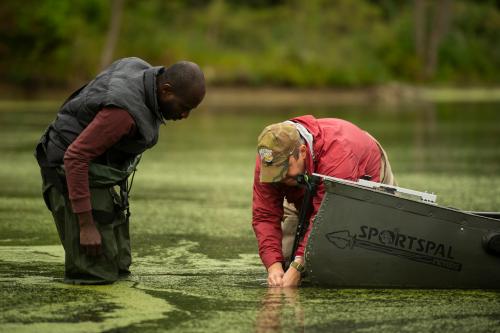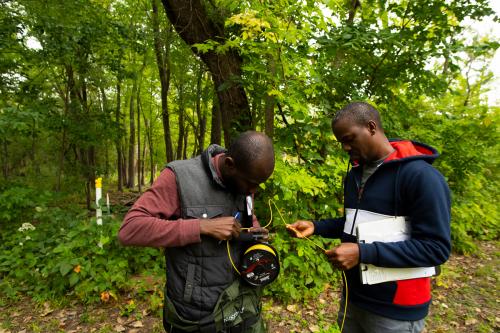University News
WIU Environmental Science Students Work to Eliminate Water Shortage
November 7, 2022
MACOMB/MOLINE, IL - - Western Illinois University environmental scientists have been working to help stakeholders better understand renewed proposals to divert the Mississippi River to supplement the supply of water in the Lower Colorado River Basin.
"As water levels continue to go down in the Colorado River and the Mississippi River basins, I suspect this issue will continue to be of interest to people from across the nation," said WIU Environmental Science: Large River Ecosystems Director Roger Viadero.
This project began in August after Viadero learned the Arizona legislature had allocated $1 billion to augment the supply of water in the Lower Colorado River Basin, including the Mississippi River, as a source of water. It was clear to Viadero that public discussion of the issue was missing some important information.
"I thought it would be beneficial for my students to look into this issue and work on ways to communicate their findings to a more broad-based audience," Viadero said. "Since October, students have presented their research at the Upper Mississippi River Conference and are working on a peer-reviewed publication."
Two WIU Environmental Science doctoral students, Dave Thomas and Sam Babatunde, attended the Upper Mississippi River Conference with Viadero.
"The conference, which focused on climate change, was informative and timely, particularly when considering the current drought that the Mississippi River Basin is experiencing," Thomas said. "Various presenters validated a major aspect of our work, including the flow conditions of the Mississippi River. They reinforced the need to pay particular attention to the negative implications of climate change such as the current low water levels of the Mississippi River, the regions less predictable precipitation patterns and the economic, environmental, agricultural, societal and ecological consequences that result from these unfavorable hydrological conditions."
In addition to the legwork it takes to research, Viadero is humbled by the motivation and individual skills each student brings to the project.
"When combined with the ability to work from anywhere, our workflow has become much more streamlined," said Viadero. "Hopefully, our work helps people to better understand the limitations of proposals that are unlikely to meet the needs for water in the West in a timely and economical way. Then, we can focus on more practical measures to meet the immediate water requirements of both the Colorado and Mississippi River basins while also working to develop a combination of efforts to meet longer-term water needs. Since access to an abundant water supply directly impacts our ability to grow food and provide electric power, this issue is likely to only grow in importance."
For more information on WIU's Environmental Science program, visit wiu.edu/graduate_studies/programs_of_study/environsci_profile.php. To read the full research proposal, visit bit.ly/3t4IkqM.
Posted By: Lexi Yoggerst (AJ-Yoggerst@wiu.edu)
Office of University Communications & Marketing



Connect with us: